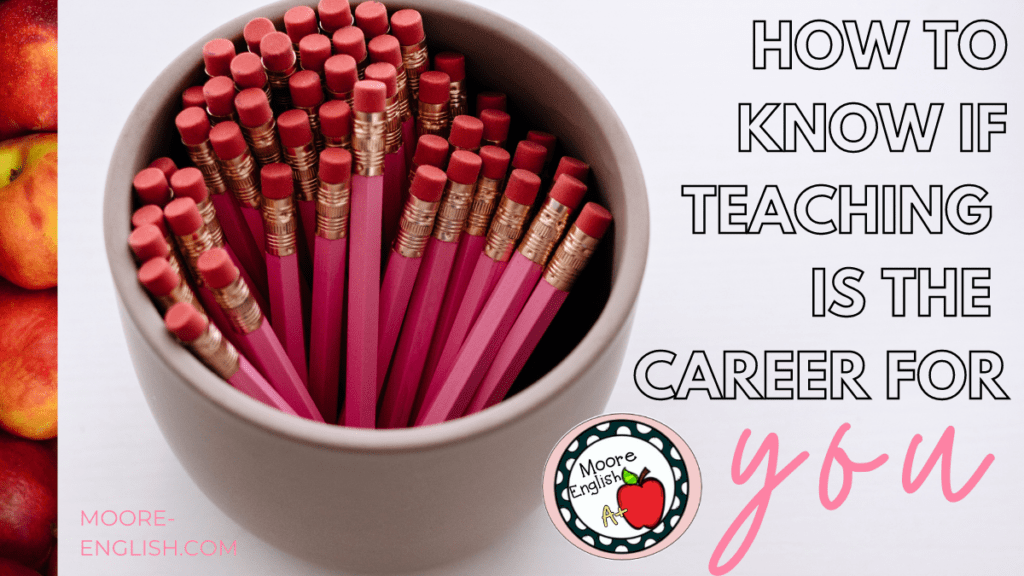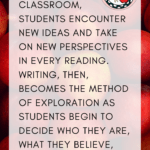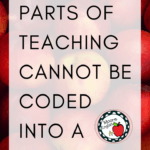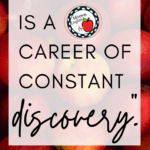“Well, if all else fails, I can always be a teacher.”
Each year when the guidance office comes to talk to students about registration for the next year, at least one student makes a comment to this effect. Few comments bother me more.
Teaching requires a tremendous amount of work: building relationships, parent contacts, lesson planning, professional development, classroom organization, face mask patrol. I cannot name or describe all the hats teachers are asked to wear.
For this reason, when “teacher” is a someone’s “safety school,” I get a little irritated. With this in mind, here are a few ways to know if teaching is the career for you.
This post this post may contain affiliate links. Please read the Terms of Use.
You Like Young People
Teaching is a great career for you if you enjoy working with children or teenagers. The single best part of teaching is watching your students grow and develop. As a high school teacher, I have the privilege of watching my students encounter different ideas and perspectives. Then, students “test” those ideas against inherited family and community values to see if there is harmony or friction.
In the English language arts classroom, students encounter new ideas and take on new perspectives in every reading. Writing, then, becomes the method of exploration as students begin to decide who they are, what they believe, and how they want to live.
There is simply no way to code that into a standard, but it’s the absolute best part of my job. And, if that sounds like a process you want to experience, then teaching is the career for you!
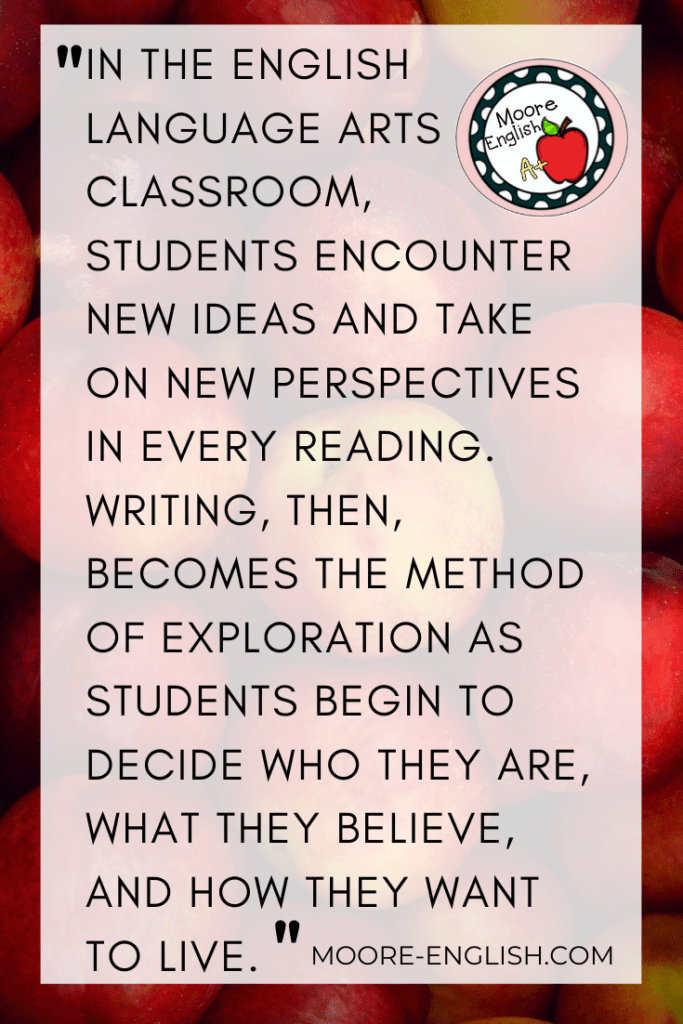
You Value Learning and Education as a Career
Additionally, if you value learning and education, teaching may be the career for you. First and foremost, school was conceived as a place for students to gain the skills they would need to succeed as adults. While the definition of “school” has expanded far beyond this original goal, learning is still at the heart of everything we do.
As a teacher, one of the best ways to motivate students is simply to be enthusiastic about content. In the high school world, enthusiasm for grammar and writing is often cause for derision. As a teacher, though, your own excitement can temper some of that scorn. In other words, as you model your own enthusiasm, you make it safe for students to also be excited about learning.
You Like Trying New Ideas
Similarly, teachers are learners first. Becoming a teacher is making a commitment to your own continued growth and development. Sometimes this commitment is a book study. Other times, you pursue advanced certification or action research. And sometimes that commitment is professional development.
All of this means that teaching is a career of constant discovery. Here’s a short list of ideas, strategies, and techniques I never knew I would be trying as a teacher, yet each one has made me a better instructor.
- Distance Learning
- Inquiry-based learning
- Giving virtual feedback and grades
- Leading professional development
- Using, valuing, and relying on assessment data
- Google Classroom, Google Slides, and Google Jamboard
- Writing a blog and designing my own teaching resources
You Are Flexible and Patient
Many of the skills needed to make teaching a career are intangible. How do you quantify a love of learning or a willingness to try new strategies?
Similarly, making teaching a career requires flexibility and patience. First, students require constant adaptation and patience. Even when students are on their very best behavior, they are creative and, at times, unexpected. This requires constant evolution.
Secondly, the bureaucratic apparatus of teaching (and teacher certification) requires tremendous flexibility and patience. For example, every time I login to my state department of education’s website, the site encourages me to use Internet Explorer, which requires that I summon every bit of patience I have left.
Finally, being a teacher requires some self-patience. For me, I never realized how often I would need to be patient with myself. Like our students, teachers are constantly growing, developing, and learning. This requires flexibility and patience that I value but did not expect.
Last Words: Teaching as Career, not Calling
As you decide whether or not teaching is the career for you, I want to make two final points. First, we’d love to have you join us! New teachers bring an often-needed injection of bubbly excitement to education.
Lastly, I want to point out that teaching is a career, not a calling. As a society, we like to describe teaching as a “calling” so we can justify teachers’ low pay, growing lists of responsibilities, and horrendous work hours. Describing teaching as a “calling” gives everyone license (ourselves included) to expect martyrdom instead of sustainability. So have that conversation with yourself. Be honest about the expectations of this career. It’s a wonderful one, but it’s one hardly anyone understands and one that requires a unique set of qualifications.


Photo credits: Ivory Mix, Haute Stock, and Krishnam Moosaddee on Unsplash

